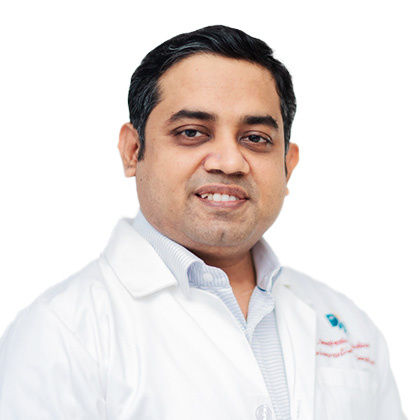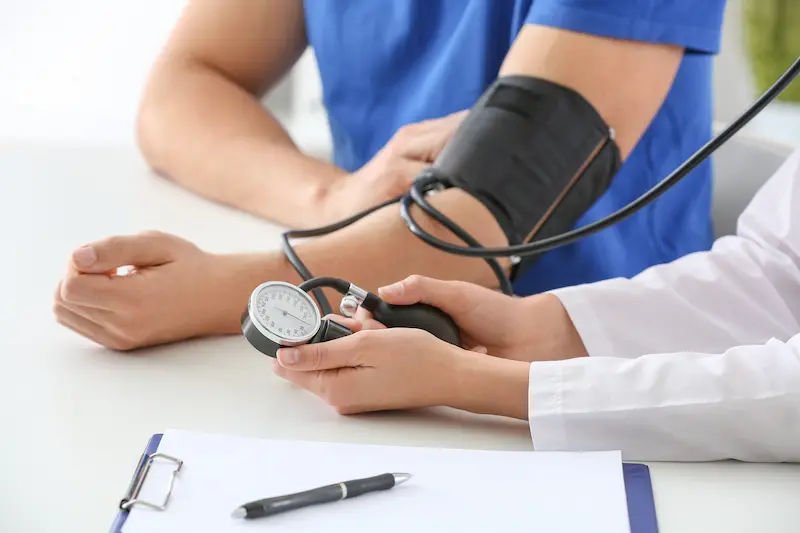Chest Pain 6 Months After Bypass Surgery
Experiencing chest pain six months after bypass surgery? Learn the possible causes, when to seek urgent care, and how to manage your heart health effectively for long-term recovery.

Written by Dr. Shaik Abdul Kalam
Reviewed by Dr. J T Hema Pratima MBBS, Fellowship in Diabetes Mellitus
Last updated on 27th Feb, 2026
_1.webp?tr=q-80,f-webp,w-350,dpr-2,c-at_max 700w)
Introduction
If you’ve undergone bypass surgery and are experiencing chest pain six months later, it’s natural to feel concerned. While some discomfort is normal during recovery, persistent or new chest pain should not be ignored. This article will help you understand the possible causes, when to seek medical help, and how to manage your heart health effectively.
Why Might Chest Pain Occur After Bypass Surgery?
Bypass surgery (CABG - Coronary Artery Bypass Grafting) is performed to improve blood flow to the heart by bypassing blocked arteries. While the surgery is highly successful, some patients may experience chest pain months later due to various reasons:
1. Healing Process & Post-Surgical Sensitivity
- After surgery, your chest muscles, bones, and nerves take time to heal.
- Scar tissue formation around the surgical site may cause occasional discomfort.
- This pain is usually mild and improves with time.
2. Angina (Reduced Blood Flow to the Heart)
If the bypass grafts narrow or new blockages develop, reduced blood flow can cause angina (chest pain or tightness).
This pain may feel similar to pre-surgery discomfort, especially during exertion.
3. Graft Failure or Blockage
In rare cases, a bypass graft may fail or get blocked, leading to recurring chest pain.
This requires immediate medical evaluation.
4. Musculoskeletal Pain
- Pain from the rib cage, sternum (breastbone), or surrounding muscles can mimic heart-related pain.
- This type of pain worsens with movement or deep breathing.
To Know The Exact Reason Consult Top Cardiologists
5. Acid Reflux or Digestive Issues
Heartburn or gastroesophageal reflux disease (GERD) can cause chest discomfort, often mistaken for heart pain.
6. Stress or Anxiety
Emotional stress or anxiety can trigger chest tightness, even without a physical heart problem.
When Should You Be Concerned?
Not all chest pain is dangerous, but certain signs require urgent medical attention:
- Crushing, squeezing, or heavy chest pain (especially if it spreads to the arm, jaw, or back)
- Shortness of breath (even at rest)
- Dizziness, sweating, or nausea accompanying chest pain
- Pain lasting more than 15 minutes without relief
- If you experience these symptoms, seek emergency care immediately, as they could indicate a heart attack or graft failure.
Managing Chest Pain After Bypass Surgery
Here are some important tips for managing chest pain after bypass surgery to help you stay comfortable and recognise when to seek medical attention:
1. Follow-Up with Your Doctor
- Regular check-ups help monitor graft health and detect new blockages early.
- Tests like ECG, stress test, or angiogram may be recommended.
2. Take Medications as Prescribed
- Blood thinners (aspirin, clopidogrel) prevent clots.
- Statins control cholesterol.
- Blood pressure medications protect your heart.
3. Adopt a Heart-Healthy Lifestyle
- Eat a balanced diet: low salt, low-fat, high-fibre foods (fruits, vegetables, whole grains).
- Exercise regularly: walking, swimming, or light cardio (as advised by your doctor).
- Quit smoking and limit alcohol: both can worsen heart health.
- Manage stress: yoga, meditation, or deep breathing exercises help.
4. Monitor Your Symptoms
- Keep a diary of chest pain episodes (when it occurs, how long it lasts, and triggers).
- Report any worsening symptoms to your doctor.
5. Avoid Heavy Lifting and Strenuous Activities
- Give your sternum enough time to heal (usually 6-12 weeks).
- Follow your surgeon’s advice on physical restrictions.
When to Book a Consultation?
If you have persistent or worsening chest pain after bypass surgery, consult a cardiologist to rule out complications. At Apollo 24|7, you can:
- Schedule a heart check-up
- Book a stress test or angiogram
- Get expert advice from top cardiologists
- Don’t ignore chest pain — early detection and proper care can prevent serious complications.
Conclusion
While some chest discomfort is normal after bypass surgery, persistent pain should never be ignored. By staying vigilant, following medical advice, and maintaining a heart-healthy lifestyle, you can ensure long-term recovery and better heart function.
Consult Top Cardiologists
To Know The Exact Reason Consult Top Cardiologists

Dr. Anand Ravi
General Physician
2 Years • MBBS
Bengaluru
PRESTIGE SHANTHINIKETAN - SOCIETY CLINIC, Bengaluru

Dr. Tripti Deb
Cardiologist
40 Years • MBBS, MD, DM, FACC, FESC
Hyderabad
Apollo Hospitals Jubilee Hills, Hyderabad

Dr. Zulkarnain
General Physician
2 Years • MBBS, PGDM, FFM
Bengaluru
PRESTIGE SHANTHINIKETAN - SOCIETY CLINIC, Bengaluru

Dr. E Prabhakar Sastry
General Physician/ Internal Medicine Specialist
40 Years • MD(Internal Medicine)
Manikonda Jagir
Apollo Clinic, Manikonda, Manikonda Jagir
(175+ Patients)

Dr. Deepesh Venkatraman
Cardiologist
10 Years • MBBS, MD (Gen Med), DM (Cardio), DNB (Cardio)
Chennai
Apollo Medical Centre Kotturpuram, Chennai
Consult Top Cardiologists

Dr. Anand Ravi
General Physician
2 Years • MBBS
Bengaluru
PRESTIGE SHANTHINIKETAN - SOCIETY CLINIC, Bengaluru

Dr. Tripti Deb
Cardiologist
40 Years • MBBS, MD, DM, FACC, FESC
Hyderabad
Apollo Hospitals Jubilee Hills, Hyderabad

Dr. Zulkarnain
General Physician
2 Years • MBBS, PGDM, FFM
Bengaluru
PRESTIGE SHANTHINIKETAN - SOCIETY CLINIC, Bengaluru

Dr. E Prabhakar Sastry
General Physician/ Internal Medicine Specialist
40 Years • MD(Internal Medicine)
Manikonda Jagir
Apollo Clinic, Manikonda, Manikonda Jagir
(175+ Patients)

Dr. Deepesh Venkatraman
Cardiologist
10 Years • MBBS, MD (Gen Med), DM (Cardio), DNB (Cardio)
Chennai
Apollo Medical Centre Kotturpuram, Chennai




_2.webp)